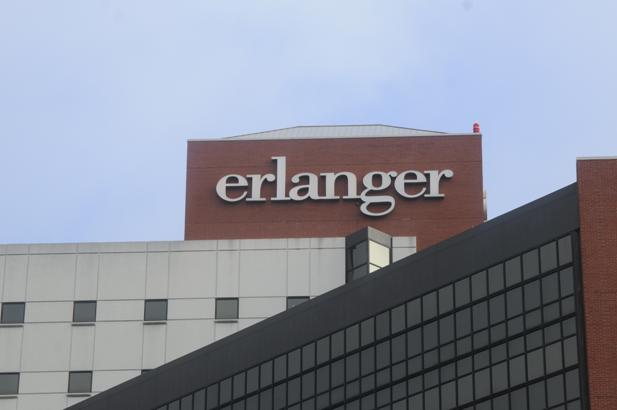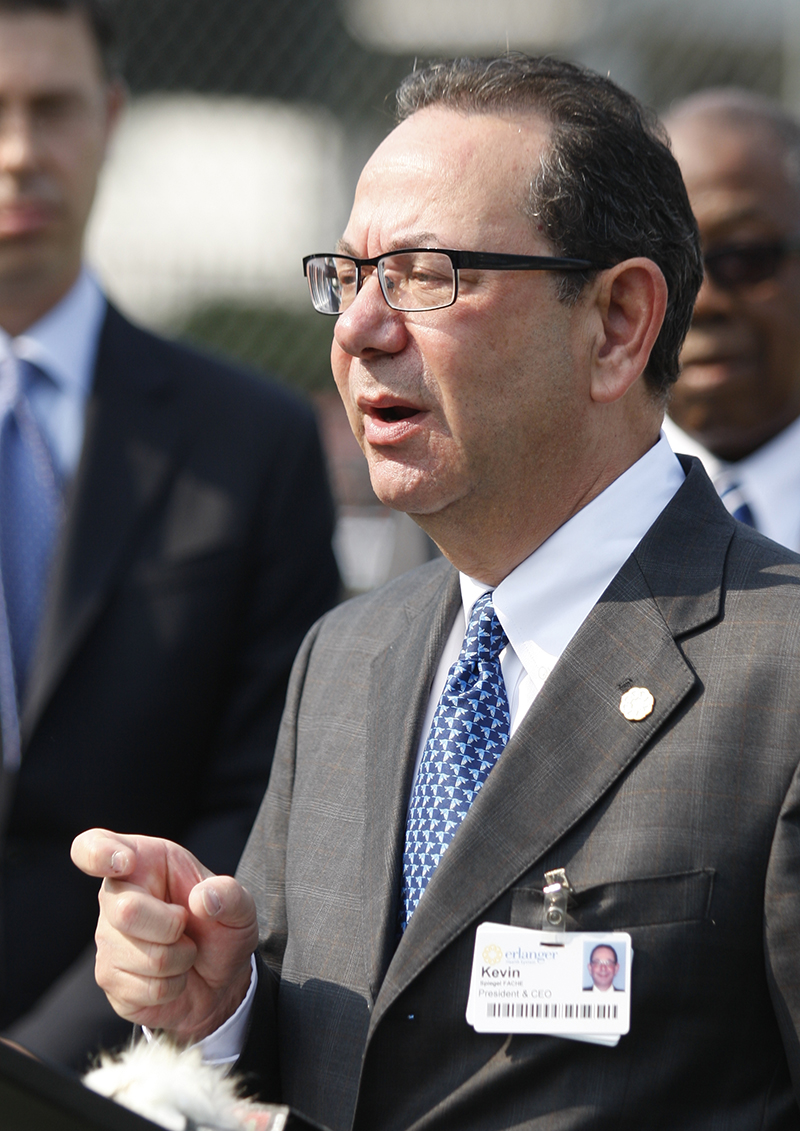Erlanger moves toward phasing out its pension plan
Tuesday, January 21, 2014
LATEST ERLANGER FINANCIALSErlanger Health System reported a $1.4 profit in December after losing $2.4 million in November, but. Year-to-date, the hospital is running a $1.5 million deficit, about $1 million less than the deficit they were running this time last year. The public hospital has provided approximately $43 million in uncompensated care this year.
Hamilton County's fourth-largest employer is the latest to move toward phasing out its pension plan.
The Erlanger Health System board's budget and finance committee voted Monday to freeze the defined benefits plan this summer and move all employees into a "modernized" retirement savings plan similar to a 401(k).
The resolution still has to go before Erlanger's full board, which meets Thursday.
About 2,500 of the hospital's 4,000 active employees participate in the pension plan. Erlanger spends about $13 million annually in contributing to its pension plan, said Gregg Gentry, the hospital's chief administrative officer.
The public hospital -- which is trying to recover financially from several years in the red -- could save $44 million from the change over the next decade, Gentry said.
Erlanger CEO Kevin Spiegel has said Erlanger is one of a dwindling percentage of hospitals that still use a traditional pension plan, and said that to continue to fund it as would be "unsafe for the long term."
"It is a decision that by its nature is difficult, but the reality is that it is overdue," Spiegel said in an interview Monday.
The sustainability of Erlanger's pension fund, which was started in 1976, has been a perennial topic among Erlanger leadership since the late 1990s, Gentry said.
In 2009, the hospital decided new employees would be put on a 401(a) plan.
But the time to freeze the plan fully is now a matter of urgency, said Spiegel. The hospital is under tight scrutiny from bondholders after running multimillion dollar deficits the last two years.
"The bondholders are looking to us to execute these changes," added the hospital's Chief Financial Officer Britt Tabor. "If we didn't, I am pretty sure they would be scratching their heads, asking why."
Tabor referred to the defined benefit model as a "dinosaur" which most employers have moved away from.
Erlanger's decision comes as Chattanooga city officials seek to restructure its fire and police pension fund and reduce its $150 million unfunded liability -- changes still requiring approval from City Council.
In Erlanger's case, Spiegel has stressed that existing plans will not be modified or reduced. It will remain intact as it stands June 21, and employees will have full access to the funds once they retire.
The 403(b) plan will join that fund, meaning those 2,500 employees will effectively have two retirement savings plans.
At that point, the hospital would begin to contribute up to 5 percent of an employee's income toward the 403(b) plan.
While the hospital will provide a baseline contribution, its total contribution will depend on the employee's.
And Erlanger officials say they are trying to give some extra cushion for workers closer to retirement age. A 2.5 percent subsidy will be given for up to five years to employees who have served 10 years of pension service at the hospital, and whose total pension service plus age equals 75.
Spiegel began notifying employees of potential changes to the pension plan last summer in an effort to avoid a surprise, he said.
During Thursday's meeting, Dr. Woody Kennedy, a physician and committee member, said he had heard plenty of worry from nurses and staff about the plan changing, but that anxiety had subsided somewhat with further explanation.
"People are just being forced to realize that this era -- a pension plan like this -- is a thing of the past. For everyone," he said.
Contact staff writer Kate Harrison at kharrison@timesfreepress.com or 423-757-6673.


